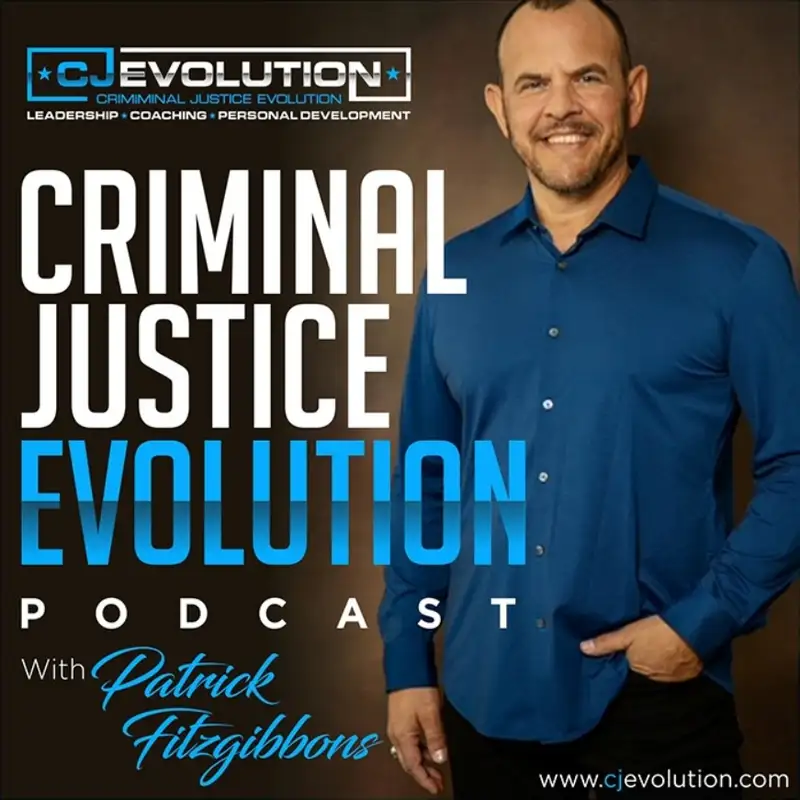Boost Officer Resilience: Start Your Trauma Recovery Now

For law enforcement officers, the line of duty often involves exposure to traumatic events that can leave lasting scars. The cumulative effect of these experiences can significantly impact mental health and overall well-being. Acknowledging the need for trauma recovery is a sign of strength, not weakness, and taking proactive steps is crucial for building resilience and sustaining a healthy career. Are you ready to prioritize your mental health and begin your journey toward healing? It's time to boost officer resilience and start your trauma recovery now.
The demanding nature of police work places officers at a higher risk for developing conditions such as Post-Traumatic Stress Disorder (PTSD), anxiety, and depression. Ignoring these issues not only affects the individual officer but can also compromise their ability to perform their duties effectively and safely. Recognizing the symptoms and seeking appropriate support is essential for maintaining both personal and professional integrity. The CJEvolution Podcast, hosted by retired Police Commander Patrick Fitzgibbons, is dedicated to providing resources and insights for first responders, focusing on health, wellness, and personal development.
This article explores practical strategies and resources available to law enforcement officers seeking to address trauma and build resilience. From understanding the impact of trauma to implementing self-care practices and seeking professional help, we'll cover actionable steps you can take to prioritize your mental well-being. You'll learn how to foster a supportive environment within your agency and access valuable tools to navigate the challenges unique to the first responder community. Remember, your health and well-being are paramount, and starting your trauma recovery is a vital step towards a fulfilling and sustainable career.
Ready to take the first step?
Explore Resources for First Responders
Understanding the Impact of Trauma on Law Enforcement Officers
The work of a law enforcement officer is inherently stressful. Daily exposure to violence, tragedy, and human suffering can take a significant toll on mental health. Unlike many other professions, officers are frequently confronted with situations that activate the body’s stress response, leading to a build-up of emotional and psychological strain. Over time, this cumulative stress can manifest in various ways, impacting both personal and professional lives.
One of the primary consequences of repeated trauma exposure is the development of PTSD. Symptoms of PTSD can include intrusive thoughts, flashbacks, nightmares, severe anxiety, and emotional numbness. These symptoms can disrupt daily functioning, making it difficult to concentrate, maintain relationships, and engage in normal activities. According to the CJEvolution Podcast, topics like mindfulness, trauma recovery, and leadership are frequently discussed, offering first responders valuable insights and practical advice.
Beyond PTSD, officers may also experience increased rates of depression, anxiety disorders, substance abuse, and even suicidal ideation. The pressure to remain stoic and in control, combined with the stigma associated with seeking mental health support, often prevents officers from getting the help they need. Recognizing the signs of trauma and understanding its potential impact is the first step towards addressing these challenges effectively. It is vital to acknowledge that these struggles are common and that seeking help is a sign of strength, not weakness.
Building Resilience Through Self-Care
Self-care is often misunderstood as a luxury, but for law enforcement officers, it is a necessity. Implementing self-care practices into your daily routine can help mitigate the effects of stress and trauma, building resilience and promoting overall well-being. Self-care encompasses a wide range of activities that support your physical, mental, and emotional health. It is about intentionally carving out time to recharge and rejuvenate.
Physical self-care can involve activities such as regular exercise, healthy eating, and getting enough sleep. Given the demanding schedules of law enforcement officers, prioritizing sleep can be particularly challenging. However, sleep optimization is a crucial aspect of maintaining mental and physical health. The CJEvolution Podcast, hosted by Patrick Fitzgibbons, includes episodes covering sleep optimization, providing practical tips and strategies for improving sleep quality.
Mental and emotional self-care involves engaging in activities that bring you joy, relaxation, and a sense of accomplishment. This can include hobbies, spending time with loved ones, practicing mindfulness or meditation, or engaging in creative pursuits. Mindfulness practices, in particular, can be powerful tools for managing stress and promoting emotional regulation. Taking even a few minutes each day to practice mindfulness can help you stay grounded and centered amidst the chaos of daily life.
Creating a self-care plan that addresses your unique needs and preferences is essential. Start by identifying areas where you feel depleted or stressed, and then brainstorm activities that can help you recharge in those areas. Remember, self-care is not selfish; it is a critical component of maintaining your ability to serve and protect your community effectively. Prioritizing your well-being enables you to show up as your best self, both on and off duty.
Seeking Professional Help: When and How
While self-care practices can be beneficial, there are times when professional help is necessary for addressing trauma and building resilience. Recognizing when to seek professional support is a critical step in prioritizing your mental health. If you are experiencing persistent symptoms of PTSD, depression, anxiety, or other mental health concerns, it is important to reach out to a qualified mental health professional.
Many law enforcement agencies offer employee assistance programs (EAPs) that provide confidential counseling and support services to officers and their families. These programs can be a valuable resource for accessing mental health care without fear of stigma or reprisal. Additionally, there are numerous mental health professionals who specialize in working with first responders and understand the unique challenges they face. Look for therapists who have experience treating trauma and are familiar with the culture of law enforcement.
The CJEvolution Podcast features a diverse guest list, including mental health professionals who offer valuable insights and practical advice for first responders. Listening to these episodes can provide a better understanding of available treatment options and help you feel more comfortable seeking help. Remember, seeking professional support is a sign of strength and a proactive step towards healing and growth. Don't hesitate to reach out for help when you need it; your well-being is worth it.
Fostering a Supportive Environment Within Your Agency
Creating a supportive environment within your law enforcement agency is crucial for promoting officer well-being and reducing the stigma associated with seeking mental health support. Agency leaders play a vital role in fostering a culture of openness and acceptance, where officers feel safe discussing their struggles and seeking help without fear of judgment or negative repercussions.
Implementing peer support programs can be an effective way to create a sense of community and provide officers with a safe space to share their experiences. Peer support teams consist of trained officers who can offer emotional support, guidance, and resources to their colleagues. These programs can help break down barriers to seeking help and encourage officers to connect with one another. Furthermore, leadership training programs that incorporate mental health awareness and strategies for promoting officer well-being can help create a more supportive and understanding work environment.
Another important aspect of fostering a supportive environment is ensuring that officers have access to adequate resources and training on stress management, trauma recovery, and resilience-building. Providing ongoing training and education can help officers develop coping skills and strategies for managing the challenges of their profession. By investing in officer well-being, agencies can create a healthier, more resilient workforce that is better equipped to serve and protect their communities.
Practical Steps to Take Today
Taking the first step towards trauma recovery can feel overwhelming, but it doesn't have to be. Here are some practical steps you can take today to prioritize your mental health and boost your resilience:
- Acknowledge your feelings: Recognize and validate your emotions without judgment. Allow yourself to feel what you're feeling without trying to suppress or ignore it.
- Practice self-compassion: Treat yourself with the same kindness and understanding you would offer to a friend or colleague. Recognize that you are doing the best you can in a challenging situation.
- Connect with others: Reach out to trusted friends, family members, or colleagues for support. Sharing your experiences can help you feel less alone and more understood.
- Engage in activities that bring you joy: Make time for hobbies, interests, and activities that help you relax and recharge. Even small moments of joy can make a big difference.
- Seek professional help if needed: Don't hesitate to reach out to a mental health professional if you are struggling to cope. They can provide guidance, support, and evidence-based treatment to help you heal and grow.
- Listen to the CJEvolution Podcast: Explore episodes featuring experts and first responders sharing their experiences and advice on mental health, wellness, and resilience.
Remember, taking care of your mental health is not a sign of weakness; it is a sign of strength. By prioritizing your well-being and seeking support when needed, you can build resilience, sustain a healthy career, and live a fulfilling life. Start your trauma recovery now and take the first step towards a brighter future.
Ready to prioritize your well-being?
The CJEvolution Podcast, hosted by Patrick Fitzgibbons, a retired Police Commander, is dedicated to empowering first responders through discussions on health, wellness, and personal development. Patrick brings his extensive experience and passion for helping first responders to each episode, offering practical advice and inspiring stories to support their well-being. He also speaks to first responder organizations about health and wellness for personnel.
